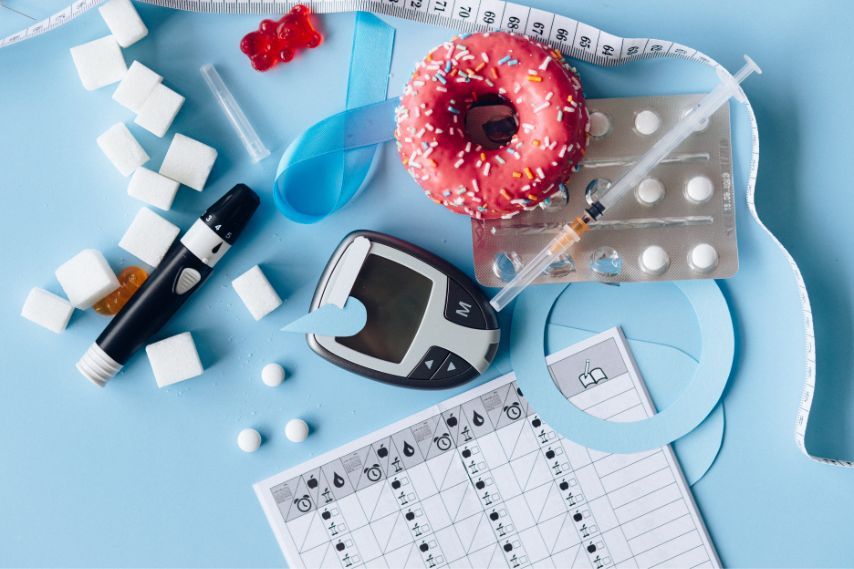Demystifying Blood Sugar: Understanding the Basics for Better Health

Explore the significance of blood sugar in weight management, diabetes prevention, and overall well-being
Understanding the intricacies of blood sugar is paramount in the realm of overall health and well-being. Whether aiming for weight management, preventing diabetes, or simply optimizing your health, grasping blood sugar basics is crucial. In this article, we'll delve into the intricacies of blood sugar, shedding light on its significance and offering insights into maintaining optimal levels for a healthier life.
The Basics of Blood Sugar:
Blood sugar, or glucose, is critical to our body's energy production. It serves as the primary fuel source for our cells, powering essential functions and keeping our bodies running smoothly. However, maintaining the right balance of blood sugar is a delicate process that involves the interplay of various factors.
The Role of Insulin:
Insulin, a hormone produced by the pancreas, is pivotal in regulating blood sugar levels. When we consume food, especially carbohydrates, the body releases insulin to help cells absorb glucose for energy. This process ensures that blood sugar levels remain within the normal range.
Impact of Diet and Lifestyle:
What we eat and how we live significantly influence our blood sugar levels. Diets high in refined sugars and carbohydrates can cause spikes in blood sugar, leading to insulin resistance over time. Conversely, a balanced diet of fiber, proteins, and healthy fats can contribute to stable blood sugar levels.
Physical Activity and Blood Sugar:
Regular physical activity enhances the body's sensitivity to insulin, promoting efficient glucose utilization. Exercise not only helps manage weight but also aids in maintaining optimal blood sugar levels. Even a brisk walk after meals can make a positive impact.
Common Misconceptions:
Myth: Only Diabetics Need to Worry About Blood Sugar:
While individuals with diabetes must actively manage their blood sugar levels, everyone can benefit from understanding and maintaining healthy levels. Preventive measures can significantly reduce the risk of developing diabetes and other related health issues.
Myth: Cutting Out All Carbs Is the Solution:
Carbohydrates are a crucial energy source; eliminating them is not the solution. Opting for complex carbohydrates and controlling portion sizes can help manage blood sugar levels effectively.
Practical Tips for Better Blood Sugar Management:
Balanced Nutrition:
Prioritize a diet rich in whole foods, emphasizing vegetables, fruits, lean proteins, and whole grains. This approach provides sustained energy and helps regulate blood sugar levels.
Regular Exercise:
Incorporate regular physical activity into your routine. Aim for at least 150 minutes of moderate-intensity weekly exercise to enhance insulin sensitivity and promote overall health.
Stress Management:
Chronic stress can contribute to elevated blood sugar levels. Practice stress-reduction techniques such as meditation, deep breathing, or yoga to maintain emotional well-being.
Conclusion:
Demystifying blood sugar is crucial for everyone, regardless of their health status. Individuals can take proactive steps toward better health by understanding the fundamentals of blood sugar regulation and adopting healthy lifestyle habits. Remember, small changes in diet and exercise can yield significant benefits, contributing to a lifetime of well-being.
As you embark on this journey to better health, consider exploring resources like MeetTulip.com for additional insights and support. Taking charge of your blood sugar is a proactive step toward a healthier, more vibrant life.




